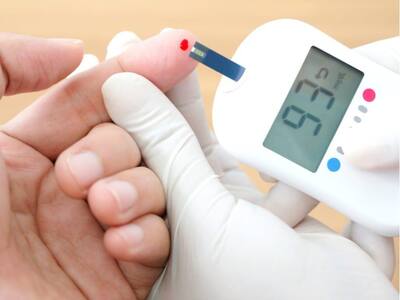Don’t Miss Out on the Latest Updates.
Subscribe to Our Newsletter Today!
Diabetes: Beneficial gut bacteria can play a key role in treating the condition

Diabetes is a chronic hormonal disease, which causes high levels of sugar in the blood. It is a result of either the lack of insulin, a hormone produced by the pancreas.
Type 2 diabetes is a highly prevalent metabolic disorder characterized by an imbalance in blood glucose level, altered lipid profile and high blood pressure. Genetic constituents, high-fat and high-energy dietary habits, and a sedentary lifestyle are three major factors that contribute to high risk of Type 2 diabetes. A team of researchers at Oregon State University in the US have found that a few organisms in the gut microbiome play a key role in type 2 diabetes, opening the door to possible probiotic treatments for a serious metabolic disease.
The human gut microbiome features more than 10 trillion microbial cells from about 1,000 different bacterial species.
Dysbiosis, or imbalance, in the microbiome is commonly associated with detrimental effects on a person's health.
Also Read
The Rise Of Diabetes - Is The Western Diet Really To Blame
According to study co-leader Andrey Morgun, the so-called 'western diet' - high in saturated fats and refined sugars - is one of the primary factors.
"But gut bacteria have an important role to play in modulating the effects of diet."
A key risk factor for type 2 diabetes is being overweight, often a result of a western diet in combination with low physical activity.
Overweight Can Trigger Diabetes
Some studies have also suggested that dysbiosis is caused by complex changes resulting from interactions of hundreds of different microbes.
However, the new study and other studies suggest that individual members of the microbial community, altered by diet, might have a significant impact on the host.
Shulzhenko and Morgun used a new, data-driven, systems-biology approach called transkingdom network analysis to study host-microbe interactions under a western diet.
That allowed them to investigate whether individual members of the microbiota played a part in metabolic changes the diet induces in a host.
Operational Taxonomic Units That Affects Glucose Metabolism
The scientists identified four operational taxonomic units, or OTUs, that seemed to affect glucose metabolism; OTUs are a means of categorizing bacteria based on gene sequence similarity.
The identified OTUs corresponded to four bacterial species: Lactobacillus johnsonii, Lactobacillus gasseri, Romboutsia ilealis and Ruminococcus gnavus.
Potential Probiotic Strains For Treatment Of Type 2 Diabetes
Checking the mouse results against data from an earlier human study, the scientists found correlations between human body mass index and abundance of the four bacteria - more of the improvers meant a better body mass index, more of the worseners was connected to a less healthy BMI.
"We found R. ilealis to be present in more than 80 per cent of obese patients, suggesting the microbe could be a prevalent pathobiont in overweight people," Shulzhenko said.
"Our study reveals potential probiotic strains for treatment of type 2 diabetes and obesity as well as insights into the mechanisms of their action," Morgun said in a paper published in Nature Communications.
"That means an opportunity to develop targeted therapies rather than attempting to restore 'healthy' microbiota in general."
Diabetes: Symptoms, Types And Causes
Diabetes is a chronic hormonal disease, which causes high levels of sugar in the blood. It is a result of either the lack of insulin, a hormone produced by the pancreas, or your body's inability to respond to this hormone.
Some of the common symptoms of diabetes are excessive hunger, frequent urination and increased thirst. While type 1 diabetes is difficult to manage, type 2 can be controlled by making simple changes in your daily routine.
Types:
Diabetes has today assumed epidemic proportions globally and India has emerged as the diabetes capital of the world. There are mainly 3 types of diabetes:
Type 1 diabetes: This is a genetic condition that is also known as juvenile-onset diabetes. It is caused by lack of insulin in the body.
Type 2 Diabetes: This is the most common type of diabetes and is also known as adult onset diabetes. It is mainly triggered by lifestyle factors like unhealthy eating, sedentary lifestyle, stress, etc.
Gestational diabetes: This develops during pregnancy. When a woman is pregnant, she may experience a temporary increase in her blood sugar levels. If left untreated it can lead to type 2 diabetes.
Risk Factors:
Diabetes has emerged as a major threat over the past few decades and is still spreading alarmingly all over the world. A number of factors are responsible for such a heavy burden of this disease.Here are the top four risk factors of this condition:
#Age
#Genes
#Obesity
#Lifestyle


